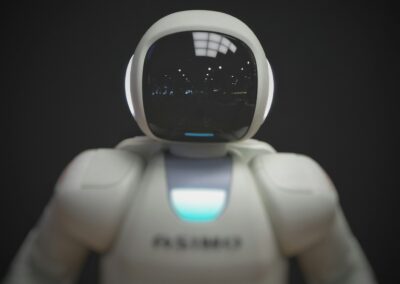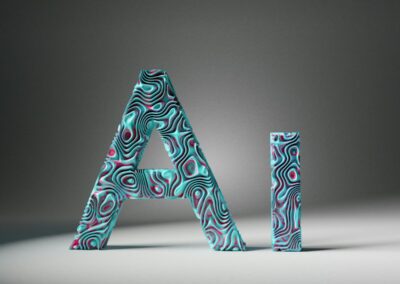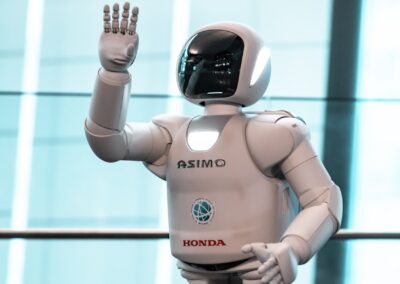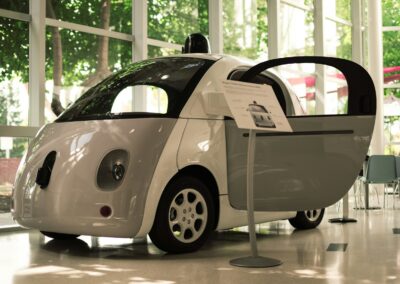Exploring the Impacts of the Technological Singularity on the Workforce
Understanding the Technological Singularity
The concept of the technological singularity and workforce transformation represents a significant shift in how society functions. This hypothetical future point is characterized by the rapid advancement of technology, particularly artificial intelligence (AI), to a level where growth becomes uncontrollable and irreversible. As AI systems become increasingly sophisticated, they will likely automate many tasks currently performed by humans, leading to profound changes in the workforce.
In regions like Saudi Arabia and the UAE, where technological innovation is a key driver of economic development, the implications of the technological singularity are particularly relevant. Cities such as Riyadh and Dubai are at the forefront of adopting advanced AI technologies, aiming to enhance productivity and efficiency across various sectors. Understanding the potential impacts of these advancements on the workforce is crucial for business executives, mid-level managers, and entrepreneurs to prepare for a future where technology plays a central role.
The technological singularity is not merely a distant possibility but a rapidly approaching reality. As AI continues to evolve, it will fundamentally alter how we work, requiring businesses to adapt to new paradigms and embrace innovative strategies to stay competitive.
The Role of AI in Workforce Automation
AI is poised to revolutionize the workforce by automating a wide range of tasks, from routine administrative functions to complex decision-making processes. The integration of advanced AI systems in business operations can lead to increased efficiency, reduced costs, and improved accuracy. However, this transformation also presents significant challenges, particularly regarding job displacement and the need for workforce reskilling.
In Dubai, for instance, the government is actively investing in AI to drive economic growth and create a knowledge-based economy. Initiatives like the Dubai AI Roadmap and the UAE’s National AI Strategy 2031 aim to integrate AI into various sectors, including healthcare, education, and transportation. These efforts highlight the potential of AI to enhance productivity but also underscore the need for comprehensive strategies to address workforce displacement and ensure that employees can adapt to new roles.
Similarly, in Saudi Arabia, Vision 2030 emphasizes the importance of technological innovation in achieving economic diversification. The adoption of AI and automation technologies is central to this vision, with significant investments in smart city projects and digital infrastructure. For business leaders, understanding how AI will transform the workforce and developing strategies to mitigate its impacts is crucial for maintaining a competitive edge in an increasingly automated world.
Preparing for Workforce Transformation
As the technological singularity and workforce transformation approach, businesses must proactively prepare for the changes that AI and automation will bring. This preparation involves not only adopting new technologies but also investing in workforce reskilling and upskilling to ensure that employees can adapt to new roles and responsibilities.
Executive coaching services can play a vital role in helping business leaders navigate this transition. By providing insights into change management, strategic planning, and innovation leadership, executive coaches can equip leaders with the skills needed to manage technological disruptions effectively. In Riyadh, for example, executive coaching programs are helping organizations develop forward-thinking strategies to embrace AI and automation while supporting their workforce through the transition.
Moreover, embracing modern technologies such as blockchain and the metaverse can offer additional opportunities for innovation and growth. Blockchain can enhance transparency and security in business operations, while the metaverse can create immersive digital experiences that transform how we work and interact. For entrepreneurs and managers, staying informed about these technologies and their potential applications is essential for leveraging new opportunities and maintaining a competitive edge.
The Future of Work in the Technological Singularity
Adapting to an Automated Workforce
The future of work in the era of the technological singularity and workforce transformation will be characterized by significant shifts in job roles and responsibilities. As AI systems take over routine tasks, employees will need to focus on more complex, creative, and strategic functions. This shift will require a comprehensive approach to workforce development, emphasizing continuous learning and adaptability.
In the UAE, efforts to integrate AI into the workforce are accompanied by initiatives to promote lifelong learning and digital literacy. Programs like the UAE’s Artificial Intelligence and Blockchain Council aim to equip employees with the skills needed to thrive in an automated environment. By fostering a culture of innovation and continuous improvement, businesses can ensure that their workforce remains competitive and capable of adapting to new challenges.
Similarly, in Saudi Arabia, initiatives like the National Industrial Development and Logistics Program (NIDLP) focus on enhancing workforce capabilities through training and education. By investing in human capital and promoting digital literacy, Saudi Arabia aims to create a resilient and adaptable workforce that can harness the benefits of AI and automation.
Leveraging Technology for Business Success
The integration of AI and automation technologies offers significant opportunities for business success. By leveraging these technologies, businesses can enhance operational efficiency, reduce costs, and improve decision-making processes. However, achieving these benefits requires a strategic approach to technology adoption and a commitment to workforce development.
For business leaders, understanding the potential impacts of AI and automation on their industry is crucial for developing effective strategies. In Dubai, for example, the Smart Dubai initiative aims to make the city a global leader in technology-driven innovation. By adopting AI and blockchain technologies, businesses in Dubai can enhance their competitiveness and drive economic growth.
Similarly, in Riyadh, initiatives like the Saudi Data and Artificial Intelligence Authority (SDAIA) focus on promoting AI adoption across various sectors. By fostering a collaborative ecosystem that includes government, academia, and industry, Riyadh aims to create a conducive environment for innovation and growth.
Conclusion: Embracing the Future of Work
The technological singularity and workforce transformation represent a pivotal moment in our technological evolution. As AI and automation technologies continue to advance, they will significantly alter how we work, requiring businesses to adapt to new paradigms and embrace innovative strategies. For business executives, mid-level managers, and entrepreneurs, preparing for this future involves understanding the potential impacts of the singularity and investing in workforce development and technology adoption.
By staying informed about emerging trends and leveraging innovations such as AI, blockchain, and the metaverse, businesses can position themselves for success in a rapidly changing world. Embracing the future of work and preparing for the singularity will be key to navigating the challenges and opportunities that lie ahead, ensuring sustainable growth and success in an increasingly automated environment.
—
#TechnologicalSingularity #WorkforceTransformation #AIImpact #FutureOfWork #AdvancedAISystems #SaudiArabia #UAE #Riyadh #Dubai #ArtificialIntelligence #Blockchain #Metaverse #ExecutiveCoaching #GenerativeAI #ModernTechnology #BusinessSuccess #LeadershipSkills #ProjectManagement























